Photo: Defense Ministry of Greece
Click to read the article in Turkish
Greece's parliament yesterday (August 27) ratified a controversial agreement with Egypt on boundaries in the Eastern Mediterranean.
In a move to counter Turkey's maritime border agreement with Libya's Government of National Accord (GNA) last November, Greece signed an exclusive economic zone (EEZ) deals with Italy on June 9 and with Egypt on August 7.
The vote on the deal came after visits Monday by German Foreign Minister Heiko Maas to Greece and Turkey, encouraging both countries to engage in dialogue to avoid conflict in the region.
European Union's foreign ministers are meeting today with the Eastern Mediterranean crisis on the top of their agenda.
Also, Greece's Iraklio Navtex station on Crete island issued a counter-Navtex yesterday in response to Turkey's alert for its Oruç Resis seismic vessel earlier in the day, Ekathimerini reported.
Turkey opposes the Egypt-Greece deal, saying that, saying that the two countries share no sea borders and that the deal is "null and void." It also asserts that the demarcated area in the pact is located on Turkey's continental shelf, as Ankara has reported to the UN. Three days after the agreement, Turkey resumed its hydrocarbon exploration activities in the Eastern Mediterranean, which it suspended after diplomatic efforts by Germany.
Turkey has long opposed efforts of various countries' maritime border claims in the Mediterranean Sea, saying that it has the longest coastline in the Eastern Mediterranean. The efforts have especially tried to deprive Turkey of its rights to explore energy resources in the region, which Turkey has encouraged the fair sharing of by regional countries.
Maritime border claims of Turkey and GreeceMaritime borders according to the deal signed by Turkey and Libya's Governmenf of National Accord (GNA) on November 27, 2019
Maritime borders according to the Greece-Egypt deal on August 7:
|
Developments in the Eastern MediterraneanOn July 28, Turkey announced after Germany's diplomatic efforts that it suspended hydrocarbon exploration activities, in the Eastern Mediterranean, which had been underway since early 2019, and stated that it was ready to talk with Greece. On August 6, Greece and Egypt signed a maritime border agreement. On August 10, Turkey announced that its drillship Oruç Reis would resume energy exploration in the Eastern Mediterranean. It said the ship will continue its work along with the ships Cengiz Han and Ataman until August 23. On August 14, the EU foreign miniters discussed the crisis at an extraordinary meeting, calling on Turkey to end hydrocarbon exploration activities in contested waters. On August 16, Turkey issued a Navtex, announcing that its drill ship Yavuz will continue its work exploring for energy resources off the island of Cyprus. On August 23, Turkey issued another Navtex, stating that the Oruç Reis vessel would continue its activities until August 27. On August 24, Greece held joint naval drills with the US in the south of Crete island. One day later, Turkey conducted naval exercises with Italy. On August 25, Germany's Minister of Foreign Affairs Heiko Maas visited Athens and Ankara to encourage the two countires to have direct talks. On the same day, Turkey held replenishment exercises with Italy in the Eastern Mediterranean. On August 26, US President Donald Trump had phone talks with President Recep Tayyip Erdoğan and Prime Minister of Greece Kyriakos Mitsotakis, urging them to reduce tensions and start dialogue. On the same day, Turkey and the US conducted joint maritime exercises. On August 27 and 28, the EU foreign ministers met with the Eastern Mediterranean crisis on the top of their agenda. |
(PT/VK)




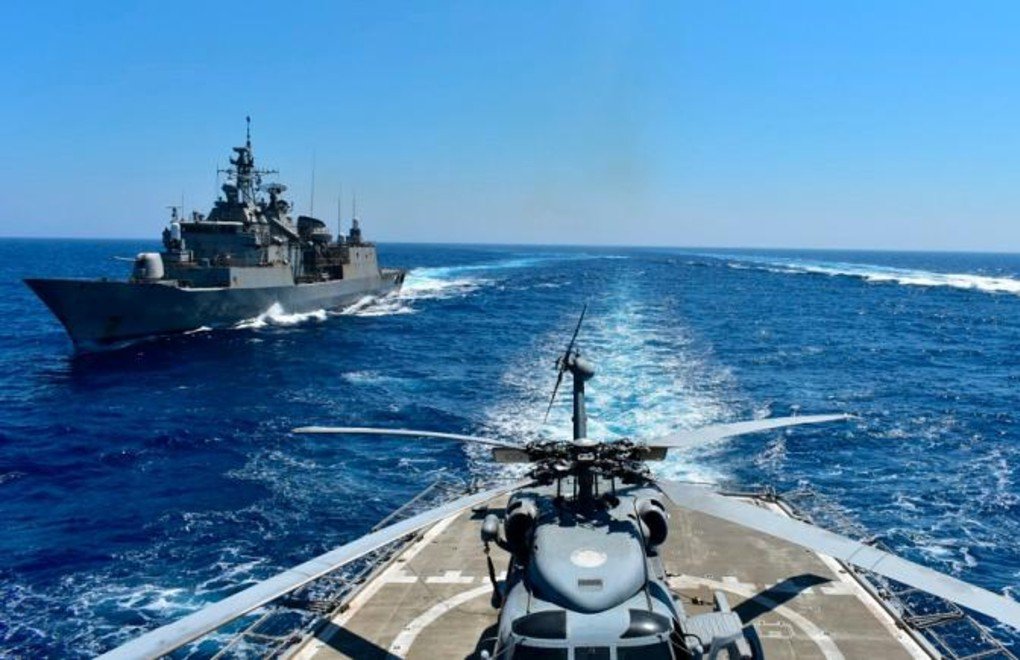
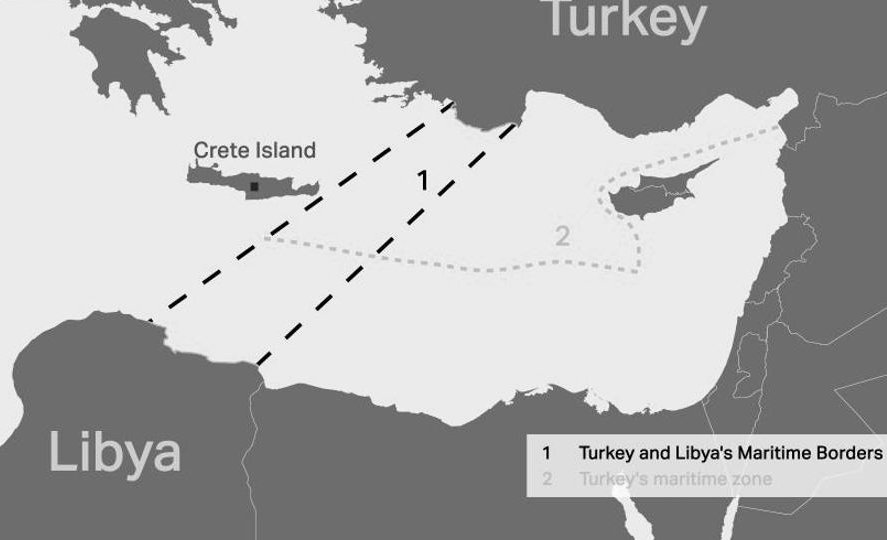 (Map: TRT)
(Map: TRT)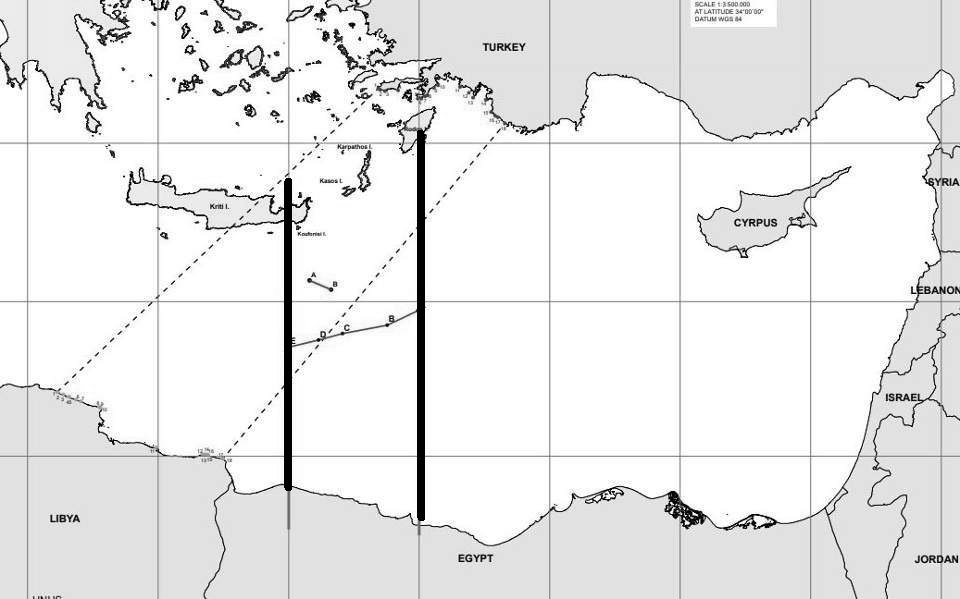 (Map: Ekathimerini)
(Map: Ekathimerini)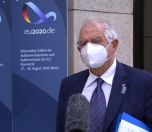
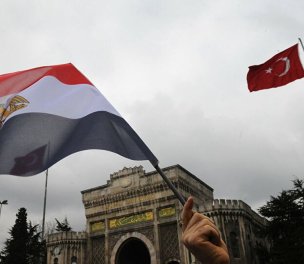
sa.jpg)
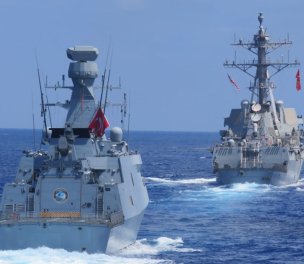
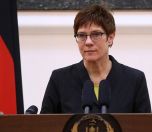
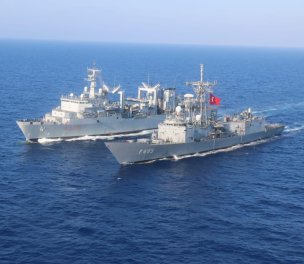
jhg.jpg)
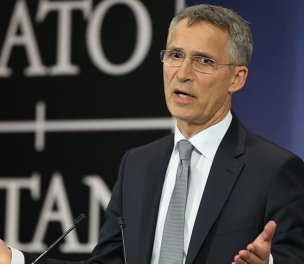

sa.jpg)